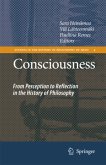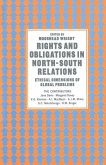In the first decade of the twenty-first century autonomy has become one of the major concerns of our social and political existence. The right to autonomous life is now a political, cultural and social call of both the individual and the group - a rare conformity that points to the crucial importance of autonomy in the agenda of critical thinking. Though the notion of autonomy in the modern era was at first applied in a political context, the term was quickly taken up in the context of individual rational persons, their rights and existences. In the wake of anti colonial movements, the term gained new perspectives and meanings which would imply new rights and new responsibilities. It became the emblem of group rights, in particular minority rights. In time the idea of autonomy became not only the standard of rights and responsibilities, but also an issue of governmentality. The present volume is a critical attempt to understand autonomy from both historical and analytical perspectives. An international group of scholars seek answers that go beyond the thinking of Immanuel Kant or a simple hermeneutic reading of the principle of autonomy. Autonomy, in this collective reading, emerges as deeply rooted in social practices and contentious politics.
Hinweis: Dieser Artikel kann nur an eine deutsche Lieferadresse ausgeliefert werden.
Hinweis: Dieser Artikel kann nur an eine deutsche Lieferadresse ausgeliefert werden.








